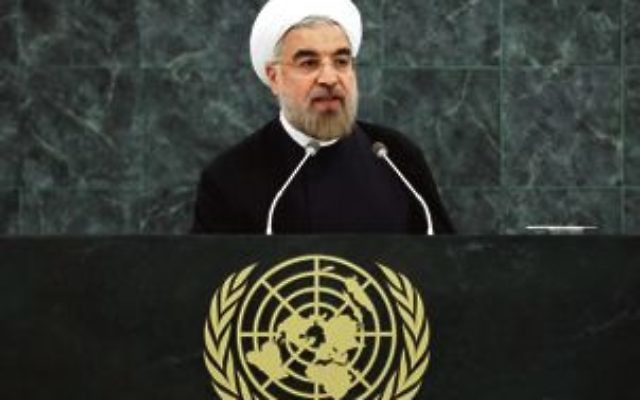Local dismay over Iran deal
AS Australia woke to the news yesterday that an agreement had been reached with Iran to curb its nuclear program, critics were already dissecting and finding problems with the deal.
AS Australia woke to the news yesterday that an agreement had been reached with Iran to curb its nuclear program, critics were already dissecting and finding problems with the deal.
Under the terms reached between the United States, China, France, Russia, Britain and Germany (the P5+1) and Iran, the Islamic Republic will still be allowed to enrich low-grade uranium, will have prior warning of international inspections and will be on the threshold of nuclear weapons capability in just 10 years.
In Israel, Prime Minister Benjamin Netanyahu condemned the deal, calling it a “stunning historical mistake”, while Justice Minister Ayelet Shaked said it will lead to “a colossal catastrophe”.
Even Australian Prime Minister Tony Abbott, while hopeful the deal would lead to a nuclear-free Middle East, said: “We give it a cautious welcome but I probably should stress the caution at least as much as the welcome.”
Foreign Minister Julie Bishop added: “The challenge for Iran will be to cooperate with international inspectors and convince the international community that it is not pursuing the development of nuclear weapons.”
Expressing his pessimism at the deal, Australia/Israel & Jewish Affairs Council (AIJAC) executive director Colin Rubenstein said, “It seems likely that it will only delay but not prevent Iran’s ability to obtain nuclear weapons, while also providing Tehran with a large amount of new resources to continue its efforts at destabilising regional neighbours and in supporting terrorism.
“The deal is likely to contribute to a nuclear arms race amidst a volatile region, while worsening the violent sectarian conflicts which are already devastating the Middle East.”
He added: “This deal risks empowering a tyrannical regime that is a leading state sponsor of global terrorism, a serial proliferator in violation of international law, and a major source of regional destabilisation, as well as one which continues to commit grave human rights abuses.
“AIJAC calls upon both the United States Congress, and all governments of goodwill around the world, including Australia, to subject the deal to maximum scrutiny and meticulous consideration before its enactment, and the most careful and strict monitoring and enforcement in the event it is enacted.
“This is too fateful an issue to allow eagerness to reach a diplomatic resolution to undermine the essential interests of the global community in preventing proliferation and destabilisation in the world’s most volatile and dangerous region.”
Zionist Federation of Australia president Danny Lamm said the agreement “represents a policy of weakness and accommodation in the face of a dangerously evil regime that imperils, not merely Israel, but the entire Middle East”.
“The Obama Administration claimed to be pushing for zero uranium enrichment, but this deal will allow 6000 Iranian centrifuges to keep spinning,” he said. “Even worse, IAEA Inspectors will have to provide 24 days advance notice before visiting Iran’s nuclear sites, an open invitation to cheat and retreat. The Zionist Federation of Australia has no hesitation about publicly voicing its opposition to this dangerous agreement.”
Executive Council of Australian Jewry president Robert Goot said the full implications of the agreement “will not be known for some years”.
“By that time President Obama will no longer be in office, but its success or failure will leave an indelible imprint on his legacy,” he said.
“In the meantime, Israel will have no choice other than to be prepared to deal with the threats posed by the oppressive, expansionist regime in Iran, one way or another.”
Full coverage in this week’s AJN.
GARETH NARUNSKY


comments